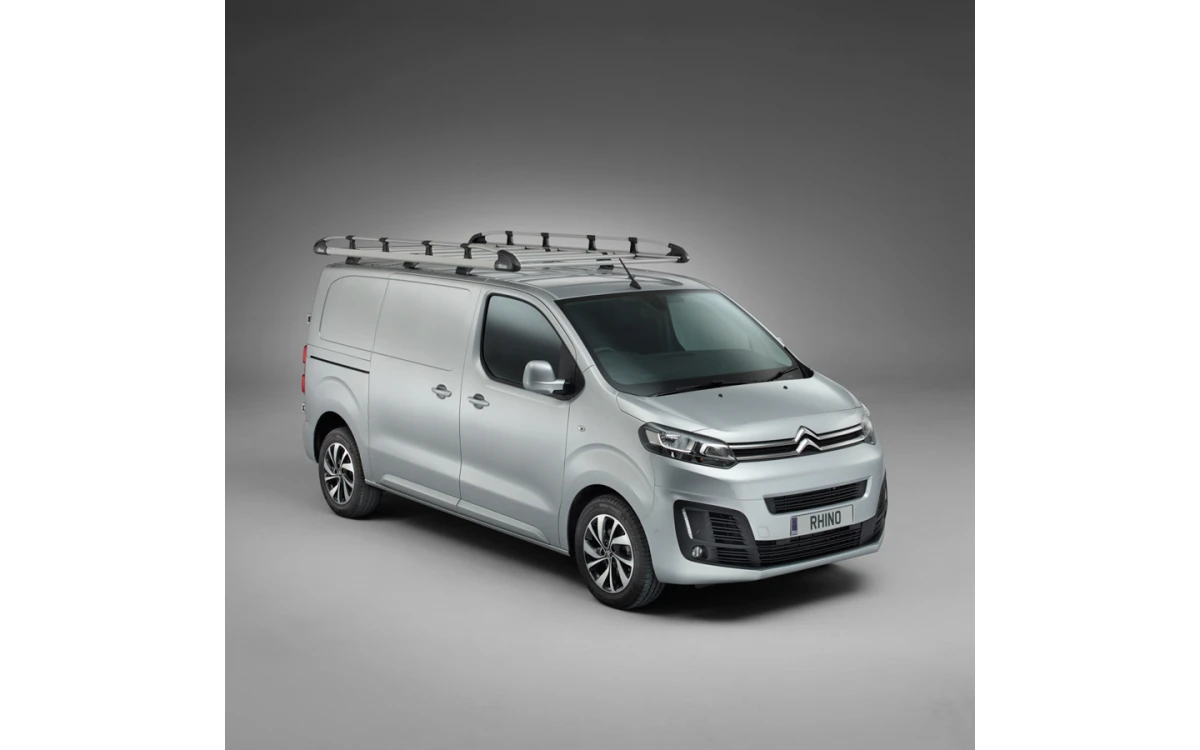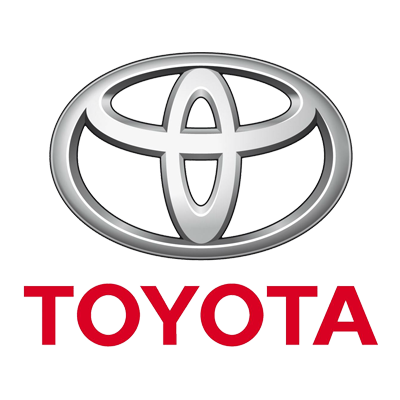The primary reason that people invest in a van is to transport tools, materials and equipment more easily. However, the internal space of a van - although much bigger than the average car - is not always enough, especially if you often carry bulky or oversized items. That’s where roof bars and roof racks come in. Both roof racks and bars are great solutions if you’re looking to increase your van’s storage capacity.
But which one is right for your needs?
In this guide, we’ll break down the main differences between roof bars and roof racks, their pros and cons, and help you decide which option is the best fit for your van.
What Are Roof Bars?
Roof bars are horizontal bars which are attached to the roof of your van, typically mounted parallel to each other, running across the width of your vehicle’s roof. Roof bars are designed to create a sturdy foundation for carrying various items like ladders, pipes or any other equipment which can be properly secured with straps or additional fixtures.
What are roof bars useful for?
Roof bars are particularly useful for transporting long items like ladders and pipes.
What are the advantages of roof bars?
Roof bars are more lightweight and streamlined and therefore more aerodynamic than roof racks, producing less drag and providing better fuel efficiency for the van driver.
In addition, bars are generally less expensive than roof racks, which makes them suitable for van owners on a tighter budget.
Lastly, roof bars are generally quite easy to install as these days, many vans come pre-fitted with mount points for them.
What are the disadvantages of roof racks?
Roof bars tend to have a lower weight capacity than roof racks do, which makes them less suitable for heavy or irregularly shaped items.
Before buying your roof bars, you will need to make sure that the ones you choose are compatible with your van’s roof type.
What Are Roof Racks?
Roof racks are more complex structures. Typically a grid or platform system, they offer a flat surface across the roof of your van for transporting large or bulky items.
What are roof racks useful for?
Roof racks are suitable for transporting heavy loads like construction materials, toolboxes, or anything that might be irregularly shaped and wouldn’t be safely transported with roof bars alone.
What are the advantages of roof racks?
The biggest advantage of roof racks over bars is that they are sturdier, offering a more heavy-duty solution for transporting weighty loads. The wide, flat surface means that you can pretty much transport anything.
What are the disadvantages of roof racks?
We’ll start with the cost: Roof racks are typically more expensive than roof bars, both in terms of the initial purchase and potential installation fees as you need to make sure it’s done properly!
Because they sit higher on your van and have a more complex structure, roof racks can create additional drag, which can affect fuel efficiency.
Roof Bars v Roof Racks for my van: What should I choose?
To make things simpler, here’s a side-by-side comparison of the key differences between roof bars and roof racks:
| Feature | Roof Bars | Roof Racks |
| Load Capacity | Moderate: Best suited for lighter items | High: Ideal for heavy/bulky and irregularly shaped items |
| Cost | Usually more affordable | Typically more expensive |
| Aerodynamics | More aerodynamic, less drag | Increased drag due to larger size |
| Ease of Installation | Simple and often DIY-friendly | May require professional installation |
| Versatility | Great for specific items | Highly versatile for all cargo types |
| Accessories | Compatible with basic accessories | Compatible with a wide range of accessories |
When to Choose Roof Bars Over a Roof Rack
Roof bars are the best choice for van owners who need to carry lighter loads and want a simple, cost-effective solution which won’t have a noticeable effect on the handling or fuel efficiency of their van. If you frequently transport ladders, pipes, or other long loads, roof bars offer an efficient way to do so.
When to Choose a Roof Rack over Roof Bars
Roof racks are the best choice for van owners who regularly transport heavy or oversized cargo. Their sturdy design and large surface area make them perfect for carrying construction materials, toolboxes, or large equipment. Roof racks are ideal for van owners who need a highly versatile system and aren’t too concerned about the cost.
What to Consider When Choosing the Right Option for Your Van
When deciding between roof bars and roof racks, consider a few key factors:
The type of van: Whichever option you opt for, make sure that it is compatible with your van’s roof type (flat, high roof, curved etc).
Your typical cargo: If you usually transport lightweight items, roof bars may suffice. For heavy, bulky, or irregular loads, a roof rack is the better choice.
Your budget: Roof bars are generally more affordable, while roof racks, although more expensive, offer greater load capacity and versatility.
Frequency of use: If you only occasionally carry items on your roof, roof bars may be the ideal option. For frequent or heavy use, roof racks are more reliable.
Ultimately, the choice between roof bars and roof racks comes down to your specific needs, the type of cargo you carry, and your budget. Roof bars are an excellent solution for those who need to carry lighter loads or are looking for an affordable, aerodynamic option. Roof racks, on the other hand, are perfect for those who need heavy-duty performance and maximum versatility.
Ready to upgrade your van’s storage capabilities?
You can browse our extensive selection of roof bars and roof racks designed specifically for your make and model of vehicle at Rhino Commercial.
Whether you need a simple solution or something more robust, we have everything you need to take your van’s functionality to the next level!
















